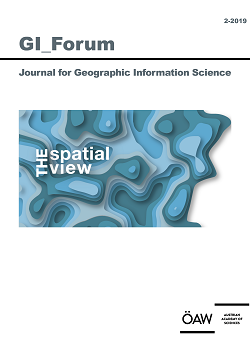Adrijana Car – Thomas Jekel – Josef Strobl – Gerald Griesebner (Eds.)
GI_Forum 2019, Volume 7, Issue 2
Journal for Geographic Information Science
Claudia Scharf,
Inga Gryl
S. 180 - 193
doi:
10.1553/giscience2019_02_s180
Verlag der Österreichischen Akademie der Wissenschaften
doi:
10.1553/giscience2019_02_s180
Abstract:
The approach of an education for innovativeness aims to enable pupils to participate in shaping societies in a mature manner, which includes the appropriation and designing of spaces. This approach is useful for educational and practical concepts such as Spatial Citizenship, which promotes the use of digital geomedia for individual and collective appropriation and re-shaping of spaces. However, encouraging innovativeness may also seem to foster participation in questionable inventing processes with trivial – or even harmful – intentions. Including an ethical meta level in the model design for innovativeness would generate reflection on the purpose of the novelty. In this paper, we look first at theories that address the term ‘problem’, social innovations and applied ethics, in order then to develop a first attempt at creating an ethical meta level in the model design for innovativeness.
innovativeness, participation, applied ethics, social innovation, appropriation of space
Published Online:
2019/12/11 14:44:21
Object Identifier:
0xc1aa5576 0x003b17af
Rights:https://creativecommons.org/licenses/by-nd/4.0/
GI_Forum publishes high quality original research across the transdisciplinary field of Geographic Information Science (GIScience). The journal provides a platform for dialogue among GI-Scientists and educators, technologists and critical thinkers in an ongoing effort to advance the field and ultimately contribute to the creation of an informed GISociety. Submissions concentrate on innovation in education, science, methodology and technologies in the spatial domain and their role towards a more just, ethical and sustainable science and society. GI_Forum implements the policy of open access publication after a double-blind peer review process through a highly international team of seasoned scientists for quality assurance. Special emphasis is put on actively supporting young scientists through formative reviews of their submissions. Only English language contributions are published.
Starting 2016, GI_Forum publishes two issues a Year.
Joumal Information is available at: GI-Forum
GI_Forum is listed on the Directory of Open Access Journals (DOAJ)




 Home
Home Print
Print
 References
References
 Share
Share
